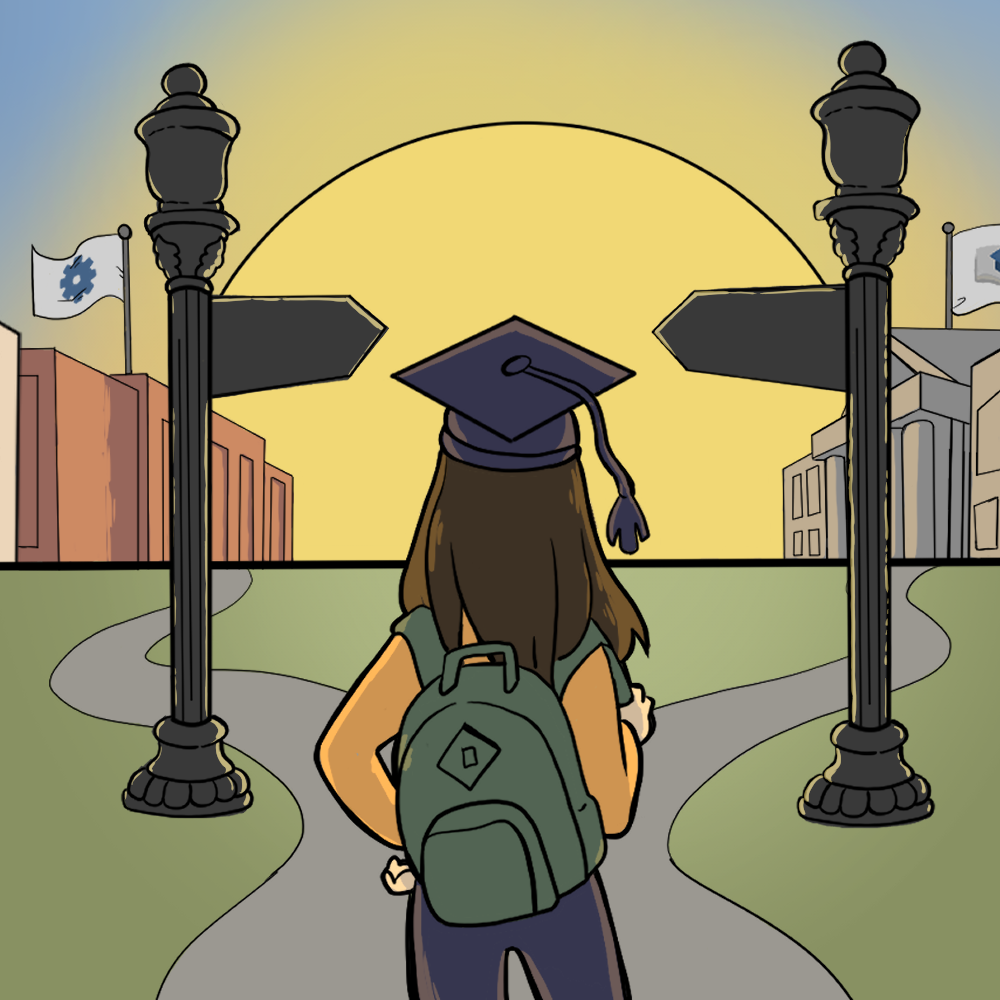Summary
This five-lesson collection equips graduating high school students with the essential tools and knowledge they need as they prepare to step into adulthood. From exploring career paths and understanding how to secure a loan, to mastering professional communication and building critical life skills, each lesson is designed to foster independence, confidence, and readiness for the real world. With engaging, relevant content and practical applications, this collection empowers students to make informed decisions and take ownership of their futures. This collection is perfect for teachers looking to guide students through the exciting (and sometimes overwhelming) transition from high school to adult life.Resources

In this lesson, students will explore potential career paths by researching and writing argumentative essays. Students will select a career of interest and gather information on job responsibilities, salary prospects, educational requirements, and the industry's current and future outlook. They will... Read more »
Change, Challenges, and Careers
Argumentative Essay
- Individual Career Academic Plan (ICAP)
- 9th - 12th
- English/Language Arts
- A.P. Language and Composition, A.P. Literature and Composition
- 12.3.W.3
This lesson helps students explore essential life skills needed for independent living by researching topics such as stress management, financial literacy, and everyday responsibilities. Students synthesize their learning by creating and delivering multimodal presentations to teach their peers, fostering real-world readiness, critical thinking, and communication skills.

Many teenagers and young adults are concerned about life in the “real world” and the adult skills needed to navigate this landscape. In this lesson, students will explore “adulting.” Students will research necessary life skills and create a presentation to be delivered to their classmates. In the process,... Read more »
Adulting 101
Researching Life Skills
- 12th Grade
- English/Language Arts
- 12.6.R.2, 12.6.R.3, 7.W, 12.7.W.1, 12.7.W.2
This lesson guides students through exploring potential career paths by having them research job responsibilities, educational requirements, salaries, and industry outlooks for careers of interest. Students analyze the pros and cons of different professions, write an argumentative essay about a controversy in their chosen field using the Claim, Evidence, Reasoning (CER) model, and share their findings with a significant person in their lives. Through this process, students develop critical thinking, research, and communication skills while gaining a deeper understanding of how to make informed decisions about their future careers.

Finding love or a loan can be tricky! In this lesson, students learn some basics on types of loans and lenders. To begin, students are given fictional characters and asked who they would rather lend money to. Then, students explore pertinent vocabulary through a word scramble and reading about standard... Read more »
Loan Connection
Getting to Know Lending Practices
- 12th Grade
- Personal Financial Literacy
- PFL.7.2, 12.1.S.1
This lesson introduces students to the basics of loans and lending by engaging them in interactive activities such as analyzing fictional borrowers, exploring key vocabulary, and reading about standard lending practices. Through a live-action loan simulation game, students take on the roles of borrowers and lenders, applying their knowledge to real-world scenarios and reflecting on the factors that influence loan decisions. By the end of the lesson, students gain a deeper understanding of how financial institutions evaluate loan applications and the importance of making informed financial decisions.

Themes of resilience, meaningful goal-setting, and prioritizing relationships are fundamental issues students will explore in this 5E lesson based on Randy Pausch’s inspirational memoir, The Last Lecture. Students will analyze how Pausch’s tone, language, sincerity, and anecdotes contribute to his... Read more »
Beyond the Lecture
Exploring Life Lessons Through The Last Lecture
- 12th Grade
- English/Language Arts
- 12.1.S.3, 12.3.R.1, 12.3.R.2, 12.4.W.2
This lesson uses Randy Pausch’s memoir, The Last Lecture, to help students explore themes of resilience, goal-setting, and the importance of relationships in overcoming life’s challenges. Through engaging activities such as group discussions, creative projects, and reflective video essays, students analyze Pausch’s perspectives on failure, personal growth, and legacy, then apply these lessons to their own experiences and future aspirations. By synthesizing literary analysis with personal reflection, the lesson encourages students to consider how practical life lessons can inform better decision-making and a meaningful life.

Through professional examples and practice, students learn how proper communication will be essential in their adult lives. They explore various types of scenarios in which adults communicate. Students will analyze characteristics and examples of what qualifies as effective and professional communication... Read more »
Adults Don't Write Essays
Written Communication as an Adult
- 12th Grade
- English/Language Arts
- ICAP
- 12.1.R.1, 12.2.W.4, 12.4.W.2
This lesson helps students understand the importance of professional communication in adult life by exploring various real-world writing scenarios and analyzing what makes communication effective and appropriate for different audiences. Through collaborative activities, AI-supported practice, and peer evaluation, students create a portfolio of polished written responses that demonstrate clear, professional communication skills essential for adulthood.
Standards
- introduce precise, informed claims
- include a defensible thesis
- acknowledge counterclaims or alternate perspectives
- organize claims, counterclaims, and evidence in a logical sequence
- provide the most relevant evidence to develop balanced arguments, using credible sources
- use sentence variety and word choice to create clarity and concision
- use style and tone that suits the audience and purpose
This work is licensed under a Creative Commons CC BY-SA 4.0 License.
Report copyright infringement »

